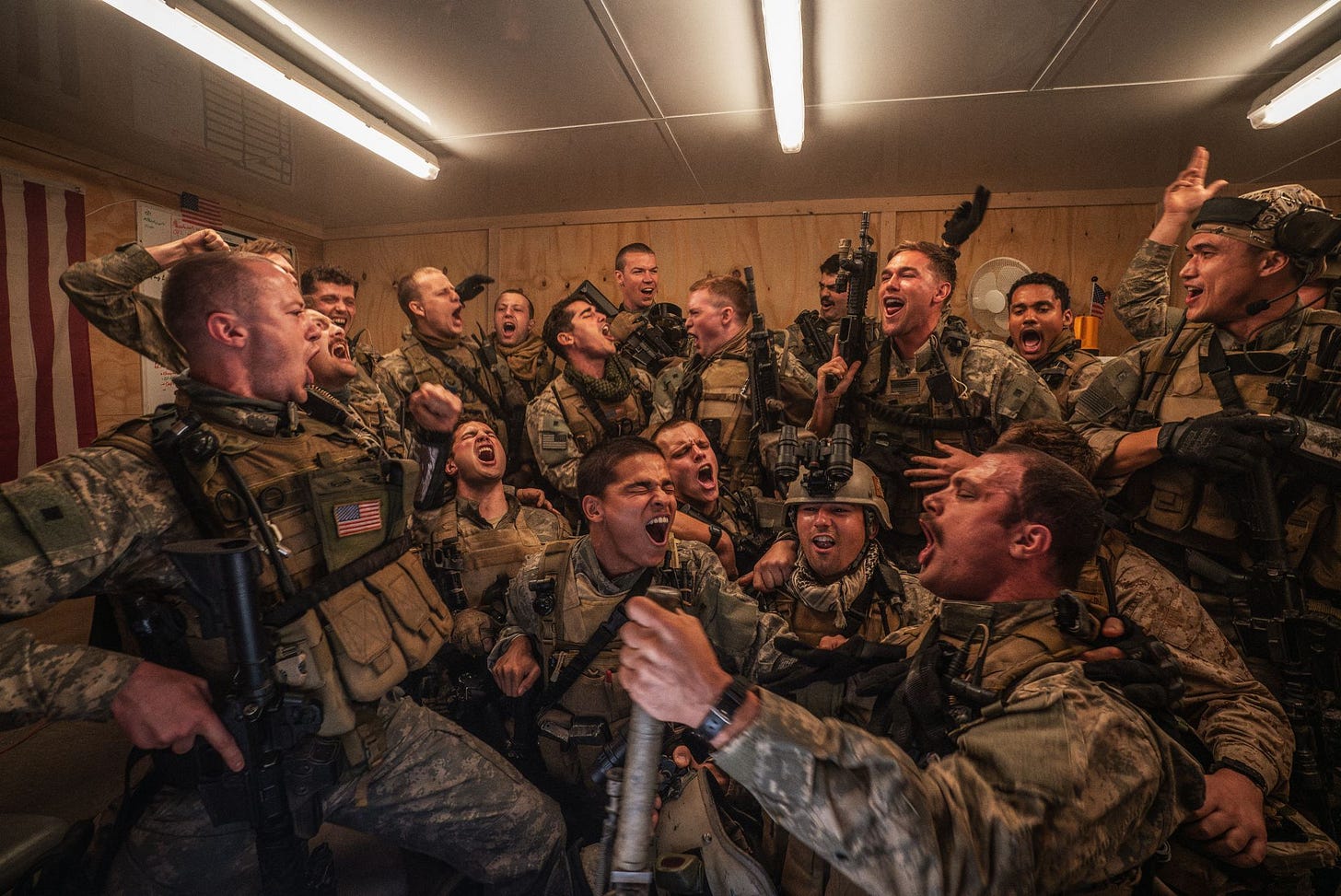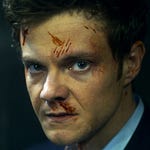Alex Garland’s reputation for delivering thought-provoking work began its decline as soon as he started to explore one of the most fascinating areas that a filmmaker with the ability to think could investigate: war. While Civil War (2024) displayed some intellectualism, it was starkly shallow compared to Garland’s previous works, which offer a grand level of philosophical depth. Even when not all may make satisfying films, such as Men (2022), the ideas behind them are richly stimulating. If Civil War struggled to get the cogs in the brain turning, Warfare marks his weakest work, a film made by a thinker which doesn’t think.
Warfare delivers a bold opening, with our Navy SEALS platoon bonding over the music video for Eric Prydz' Call On Me (2004) in the midst of a war zone. Its energy effectively portrays the contrast of the familiar humanity of these men to the brutality of war that they will inevitably face and be responsible for engaging in. This portrayal of showing something unpleasant about reality through the bonding of erotic music videos from the 2000s is as deep as the thought provocation gets. It's also as energetic as the film gets, despite the explosions and firing of bullets still to come.
Following the opening scene, our journey begins with a slow pace, as the platoon takes control of a multi-story house in Iraq, monitoring the neighbourhood. There’s no central character that we’re introduced to, nor any drama. We’re just sitting there, like the men, waiting for something to happen. Action eventually arrives when a grenade is launched inside the house, provoking the men to attempt to escape the hostile area. However, after an IED explosion results in fatalities and some of the men with life-threatening injuries, the platoon is trapped until further help arrives to assist their exit.
On paper, this may sound like an intense journey to experience, however, no intensity exists on screen. You’re observing the action and violence unfold rather than feeling involved in it. If you were to pinpoint where this lack of immersion may stem from, it would likely be down to having no hero’s journey to embark on. There are no characters that demand our attention, nor do any of them have an arc to follow. The lack of emotional involvement presents a journey to us that feels as though we haven’t been welcomed on.
Warfare’s lacking features are somewhat explained by its unique creation of being a depiction of real-life events, co-directed by war veteran Ray Mendoza, who was directly involved in the conflict. The film insists that its depiction of events is based solely on memory, which would explain a lack of narrative design that we’re used to consuming from cinema, especially when Mendoza refrains from positioning his character as the central focus of the journey. The ambition behind this approach to storytelling is admirable to say the least, along with the graphic detail of death and injury, it’s certainly not a work that’s censorious with its depiction of war. While its dedication to portraying reality in its truest form may satisfy those involved, the same can’t be said for the audience.
We usually associate cinema with immersion, as we escape reality and experience the fascination of getting inside the heads and lives of others. However, this kind of experience can only be achieved through the perspective of the individual. If we were to observe reality while discarding our characteristics, such as judgment and empathy, the experience would be somewhat stale, as without these, we’d be unable to react to the world. The same applies to engaging with a story. Without getting to know the individuals involved, there is little reason to react to the events that occur. This is why Warfare has no soul. It delivers an experience as if the audience were witnessing a crime. You witness the act being committed, yet are ignorant of the circumstances which provoked such an event to occur and the backgrounds of the individuals involved. Our involvement, therefore, can only be met at a certain distance. While Warfare has no obligation to give us insight into those involved or present ideas that stimulate the mind, it would be a mistake to describe the final delivery as immersive.
Out in UK cinemas now












Share this post